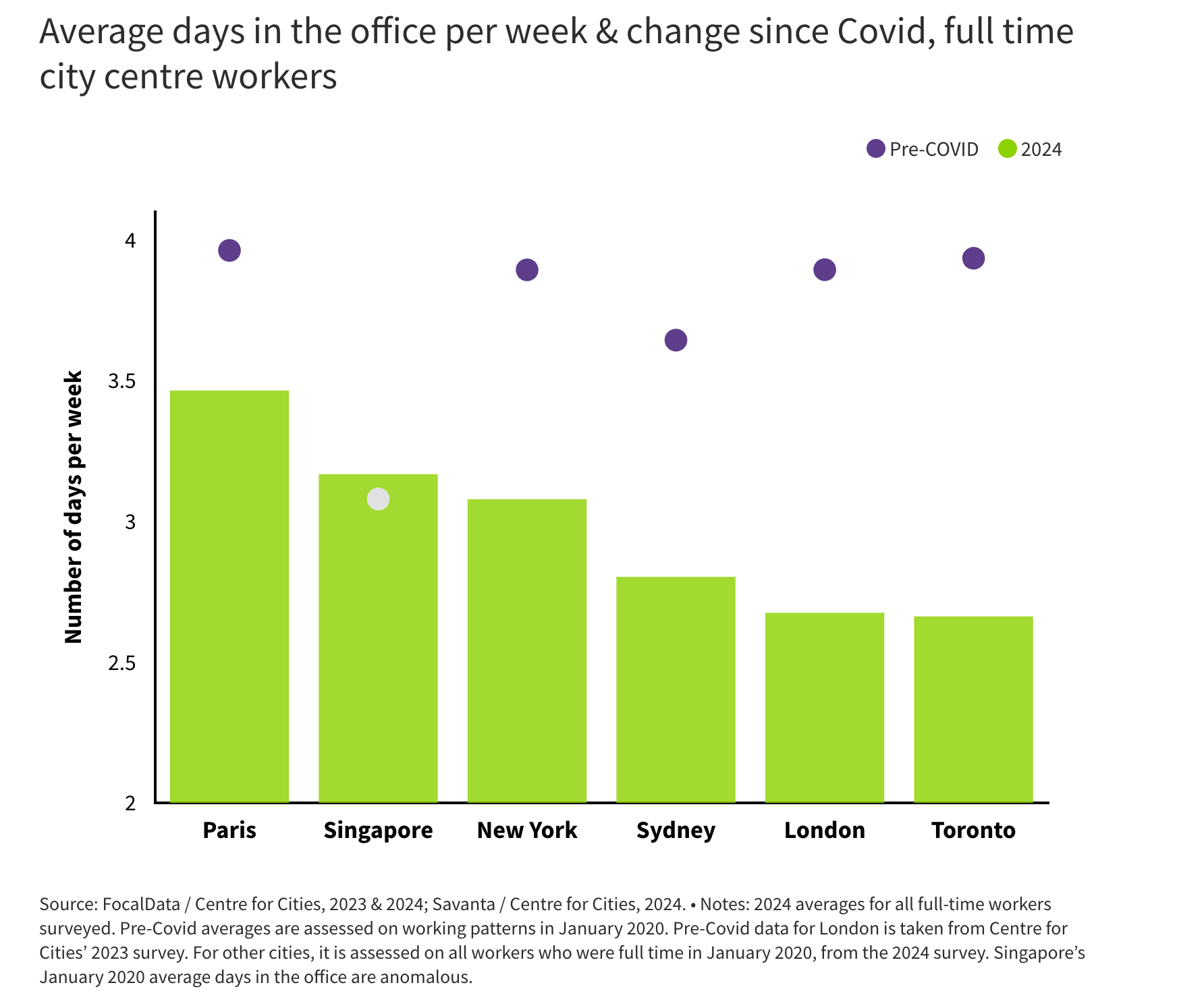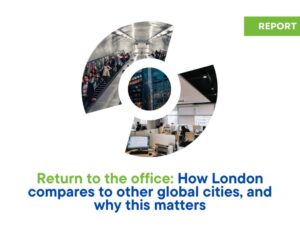The Covid-19 pandemic was a seismic shock to the way we work. It led to predictions of the ‘end of the office’ in many city centres around the world.
These predictions have clearly not come to pass: Centre for Cities’ 2023 report found that the return to the office in central London was already well underway last year. At the same time, the rise of hybrid work has changed office working patterns in ways unthinkable even five years ago.
This report presents the latest data documenting how the central London return to the office has continued in 2024, the behaviours and attitudes that drive it, and where it might go in the future. It puts London in context, through specially commissioned surveys of office workers and employers in London and the city centres of five of its international competitors: Paris, New York, Singapore, Sydney, and Toronto.
While the average full-time central London worker is now spending 2.7 days in the office per week, this puts London’s return to the office behind most of its global competitors.
Figure 1: London trails the pack when it comes to office working among global cities

This is not the only way London stands out. Central London employers set the lowest mandates of all cities. London offices are the emptiest on a Friday. And London is the only city surveyed where younger workers are in the office more often than their senior colleagues.
Consequently, London may miss out on the benefits that face-to-face interaction brings to companies and the wider economy. And younger workers’ development could be stymied from missing out on older colleagues’ experience. All of this could impact the Capital’s productivity growth and erode its competitiveness on the global stage.
The aim for the Mayor of London, and national government, should therefore be to set London’s return to the office on the same trajectory as other global cities. Government, firms, business groups and business leaders should work in conjunction to:
- Gather evidence: the impact of post-pandemic working patterns on productivity, innovation, and skill development is poorly understood.
- The Government should be more proactive in attempting to measure the impact of hybrid working on productivity to inform future decisions on land use and transport investment.
- The Mayor should contribute through setting up a Productivity Advisory Council.
- Firms should also internally review productivity impacts of hybrid working.
- Cut the costs of commuting: Travel costs are more of a barrier to office working in London than in any other city.
- TfL should resume and extent its off-peak Fridays policy, accompanied by raising awareness that hindered the impact of its previous scheme.
- Local and national government should continue with plans for investment in commuter transport infrastructure.
- Worker attitudes suggest very few simply don’t like being in the office. So firms with budgets for ‘perks’ or office revamps to entice workers back in might find their money better spent on subsidising commutes instead.
- Change attitudes to office working: these have shifted in the past year – government and firms themselves have the power to shift them again.
- Both the national government and the Mayor of London should continue to work with central London businesses and business groups to set higher expectations of days in the office, through a ‘Let’s Do London’ style campaign.
- Less than one in ten London workers would look for a new job if mandates rose, despite far higher concerns among employers. So firms have more scope than they think to raise mandates, or enforce existing ones.
- Business leaders should lead by example. More senior staff coming into the office could improve decision-making, productivity, and the development of younger colleagues.
Download the report here
About MyQuickCloud
MyQuickCloud is a secure cloud office. Each user has its own dedicated desktop workspace to open from anywhere. Users connect to the same desktop while in the office or outside.
Working together has never been easier.
Find out more at www.myquickcloud.com





